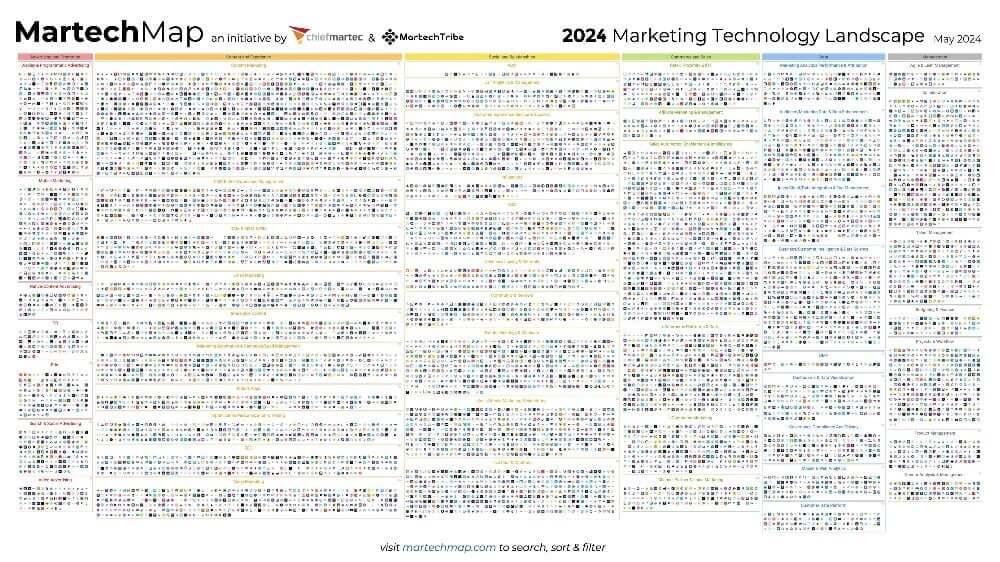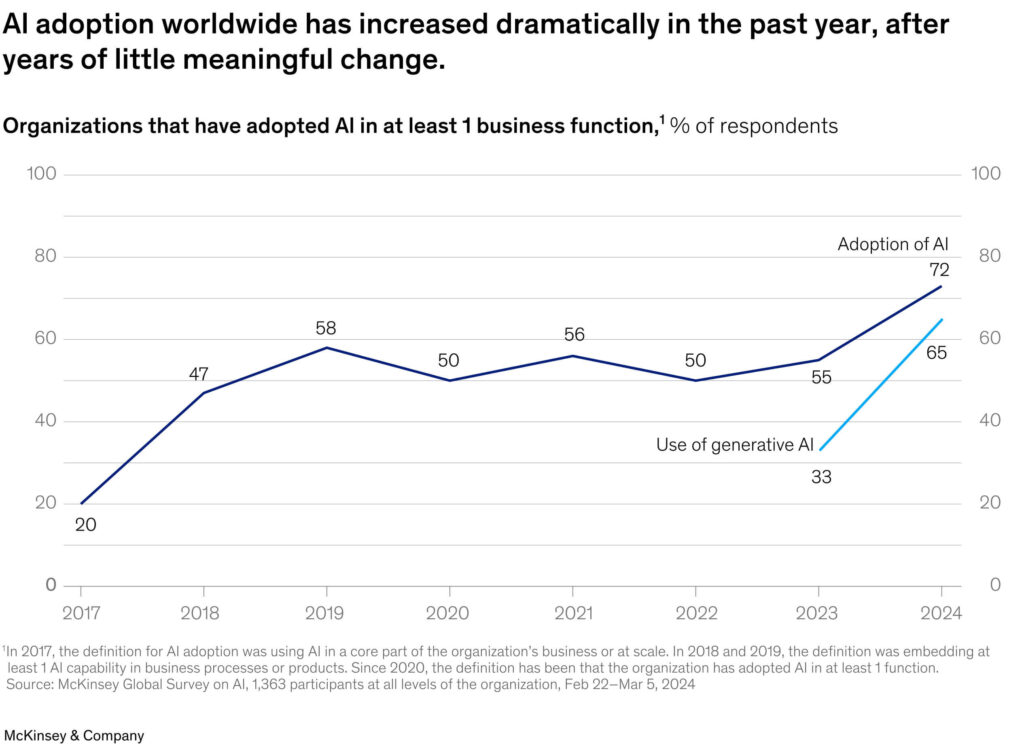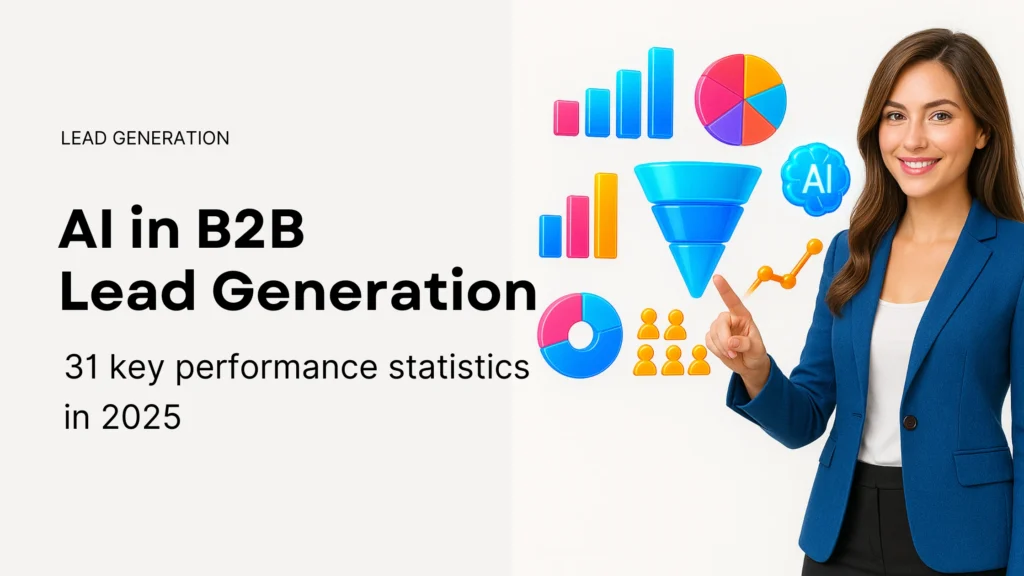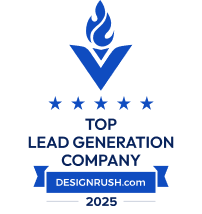AI in Lead Generation: Balancing Innovation with the Human Touch

📅 Published: February 28, 2025 | ⏱️ 8–10 min read
Introduction: AI’s Growing Role in Lead Generation
Artificial Intelligence (AI) has become a game-changer in how businesses find and attract new customers.
In plain terms, AI in lead generation means using smart algorithms to identify potential customers (leads), engage with them, and even nurture them through the sales pipeline.
AI has gained traction because it promises efficiency and scale – it can analyze huge amounts of data and detect patterns far beyond human capacity.
No wonder studies find that companies adopting AI in their lead-gen see about 50% more leads at a 47% higher conversion rate. With numbers like these, AI is fast becoming an essential part of modern marketing and sales.The momentum behind AI is also backed by big forecasts. By 2025, Gartner predicts 75% of B2B sales organizations will use AI-guided selling, and McKinsey estimates $2.6 trillion in potential value from AI in marketing and sales.
In other words, AI has evolved from a nice-to-have experiment into a must-have technology for competitive lead generation.
That said, AI isn’t a magic lead machine that instantly closes deals on its own.What it does best is heavy data-crunching and initial outreach at scale, augmenting human teams so they can spend time where it matters most. In practice, the most effective lead generation happens when AI works in partnership with human insight and the “old-school” art of relationship-building.
To see how we arrived at this balance, let’s first trace how AI in lead generation has evolved over the last decade.
How AI in Lead Generation Has Evolved Over the Last 10 Years
AI in lead generation has transformed significantly over the past decade, evolving from simple analytics to advanced AI-driven automation and personalization. Here’s a breakdown of its major milestones:
2013–2015: AI-Driven Lead Scoring
AI made its first real impact in lead generation through predictive analytics. Businesses began using algorithms to analyze customer data and determine the likelihood of conversion.
While groundbreaking at the time, AI’s role was limited to ranking leads based on past behaviors,helping sales teams prioritize outreach but not actively engage with leads. This period laid the foundation for AI-powered decision-making in sales and marketing.
2016–2018: AI-Powered CRM Systems Take Over
Fast-forward to the mid-2010s, and AI started entering the mainstream. By 2016, major platforms like Salesforce had launched AI integrations (such as Salesforce Einstein), signaling that predictive lead scoring and automated recommendations were becoming built-in features of everyday sales software.
AI was no longer a separate tool – it was embedded in CRM systems, helping sales teams prioritize opportunities and even suggesting next best actions.
2019–2021: AI Chatbots & Virtual Assistants Become Widespread
In the late 2010s, AI-powered chatbots and virtual assistants became common for lead generation. Websites began greeting visitors with chatbot pop-ups that could answer questions or even qualify leads by asking a few basics (“Are you looking for X product or Y service?”).
At the same time, AI assistants were being used to send follow-up emails to inbound leads and re-engage old prospects. These tools worked 24/7 and never got tired, ensuring every inquiry got a quick response.
By 2020, AI-driven lead gen tools had moved from experimental to fairly common.
2022–2024: The Generative AI Revolution
The early 2020s then took AI in lead gen to another level with the rise of generative AI. Technologies like OpenAI’s GPT-3 and the debut of ChatGPT in 2022 enabled AI to not just analyze data, but also create content.
Suddenly, AI could draft personalized outreach emails, write marketing copy, or tailor web content for different audience segments – tasks that felt very human before. This breakthrough led to a surge of interest and adoption.
In fact, recent surveys show that AI adoption in marketing and sales functions more than doubled from 2023 to 2024. The evolution over ten years is remarkable: we went from rudimentary scoring models to AI that can carry on conversations and generate content.
And as AI capabilities grew, so did its acceptance – what was once “nice to have” is now seen as indispensable by many B2B organizations.
The Overwhelming AI Landscape: Too Many Tools, Too Many Choices?
As AI has exploded in popularity, it’s created an unintended side effect: too many tools to choose from. Marketers and sales teams today face a jungle of AI-powered platforms for lead generation.
It’s not just a handful of tools – the marketing technology landscape now includes over 14,000 solutions, many of them boasting some form of AI. No wonder 57% of marketers feel overwhelmed by the number of martech platforms available.

The abundance of choice can be paralyzing. Teams often struggle to figure out which tool fits their needs, and evaluating dozens of options eats up time and energy. This “tool overload” can lead to unfortunate outcomes. In many companies, bloated tech stacks result in redundant capabilities or unused software.
A staggering 72% of marketing teams say they have ended up stuck with AI tools that failed to meet expectations. Chasing the latest shiny software can mean wasting budget on platforms that promise everything but deliver far less in practice.
Moreover, the rapid pace of innovation means platforms are constantly adding features – 21% of marketers admit they can’t keep up with how quickly these tools evolve.
To make matters even more overwhelming, the AI landscape has been evolving at an unprecedented speed in just the last six months. Here’s a quick look at some of the biggest AI developments that have further saturated the market and intensified the competition:
- November 2023: DeepSeek-V2 Launches
China’s DeepSeek-V2, an open-source AI model, emerges as a serious competitor to GPT-4, offering an alternative to Western-dominated AI models. The model gains massive traction across Chinese enterprises and research institutions.
- December 2023: Baidu’s ERNIE 4.0 Goes Live
Baidu, China’s tech giant, rolls out ERNIE 4.0, a ChatGPT rival fine-tuned for Mandarin and optimized for local market needs. The launch sparks a new AI race between China and the West, further increasing AI tool saturation.
- January 2024: Tencent Releases Hunyuan AI
Tencent, another major Chinese player, unveils Hunyuan AI, an advanced multimodal model capable of processing text, images, and voice data. The AI battleground in China heats up even more.
- February 2024: Elon Musk’s xAI Launches Grok 3
Musk’s AI company xAI debuts Grok 3, designed to directly compete with ChatGPT and Gemini. Touted as the smartest AI assistant yet, it fuels another wave of companies experimenting with AI for sales and marketing.
- March 2024: OpenAI Teases GPT-5
OpenAI announces that GPT-5 is in its final testing phase, expected to be a game-changer for AI reasoning and personalization. Speculation grows that it will redefine AI’s role in lead generation, chatbots, and automated sales outreach.
- April 2024: Mistral and Anthropic Release Upgraded Models
Open-source AI company Mistral and AI safety startup Anthropic (makers of Claude AI) roll out major updates, increasing competition in the AI assistant and chatbot space.
- May 2024: Google Launches Gemini 1.5
Google releases Gemini AI 1.5, an upgraded model designed to outperform ChatGPT in multimodal tasks. The AI battle escalates further, with every company rushing to integrate the latest AI capabilities.
This rapid-fire evolution of AI has made it nearly impossible for businesses to keep up. With so many powerful models launching in quick succession, marketers and sales teams feel immense pressure to continuously update their AI stacks—or risk falling behind.
The end result can be decision fatigue and “analysis paralysis,” where teams hesitate to commit to any solution at all. So how do you navigate this overwhelming landscape?
The key is to focus on quality, not quantity. It’s better to implement a few well-chosen tools deeply than to spread yourself thin across ten different apps. Successful teams often start by identifying their biggest pain points in lead generation (for example, qualifying inbound leads or sourcing new prospects) and then finding an AI solution that directly addresses that problem.
They also make sure any tool will integrate with their existing workflow – the fanciest AI platform is useless if nobody actually uses it. In short, more technology isn’t always better. A thoughtful, streamlined approach to AI tools will beat a scattershot approach every time.
Why AI Can Never Fully Replace Human Interaction
With all these advancements in AI, one might wonder: could automated systems handle lead generation entirely on their own? In B2B sales especially, the answer is no – human interaction remains irreplaceable.
The simple reason is that business relationships are built on trust, understanding, and nuance, which are things only humans can truly provide. An algorithm might analyze data flawlessly, but it can’t genuinely empathize with a client’s pain points or build rapport out of thin air.
In fact, surveys indicate that despite all the digital tools available, 82% of U.S. consumers (and 74% of consumers globally) still want more human interaction in the future. This reflects a basic truth: people value the human touch. They want to feel heard, understood, and valued – and a friendly conversation with a real person goes a long way, whether it’s a sales call or a customer service chat.
There are also practical limits to what AI can handle in the complex world of B2B lead generation. High-value sales often involve multiple decision-makers, detailed negotiations, and custom-tailored solutions.
AI can assist by crunching numbers or automating follow-ups, but it won’t be closing a multi-million dollar deal by itself. Human sales professionals use intuition and experience to navigate these complexities – for example, reading the room during a meeting, sensing unspoken concerns, or creatively problem-solving a compromise that makes everyone happy.
Those are skills no software can replicate. Think of AI as an incredibly smart assistant: it can provide insights and even handle routine interactions, but closing deals and building long-term business relationships require human charisma, judgment, and emotional intelligence.
In short, AI can set the stage, but humans still take the spotlight when it comes to winning trust and delivering a personal touch.
The Future of AI in Lead Generation: Where Are We Headed?
In the coming years, AI will become an even more seamless part of lead generation. Generative AI will likely power hyper-personalized marketing—think dynamically tailored webpages or emails created on the fly for each prospect. Instead of generic messaging, AI will help companies speak to leads as if they truly understand their needs, at scale.
1️⃣ Generative AI Will Make Personalization the Norm
For years, marketers have tried to make emails and ads feel more personal. But AI is about to take this to another level. With tools that analyze past interactions, AI can now generate outreach messages that feel individually crafted without requiring manual input from a sales team.
The result? More engaging conversations and higher response rates. 80% of marketing teams are already shifting towards AI-driven hyper-personalization, and early adopters report email open rates increasing by 29%.
2️⃣ AI Will Predict the Best Time to Reach Out
Sales has always been about timing- reach out too early, and a lead isn’t ready; too late, and you have lost them to a competitor. AI will soon be the ultimate timing expert, tracking how leads engage with your website, emails, and ads to detect buying signals.
Imagine getting a notification like:
❝ This lead has just viewed your pricing page and read two case studies—now is the perfect time to follow up! ❞
By 2026, 90% of B2B sales teams will use AI-based intent data to predict when leads are most likely to convert.
3️⃣ AI Will Reshape How B2B Buyers Make Decisions
Today’s buyers don’t want hard sales pitches—they want to research on their own. In fact, 75% of B2B buyers now prefer digital self-service over talking to a salesperson right away. This means AI-powered chatbots, interactive demos, and automated follow-ups will play an even bigger role in guiding leads through the funnel before they ever speak to a human.
Companies that don’t integrate AI into their buying journey may find themselves losing engagement before the sales team even gets involved.
4️⃣ AI Will Make Cold Outreach Smarter, Not Just Faster
Let’s be real—no one likes spammy cold emails. Instead of blasting thousands of generic messages, AI will identify warm leads based on behavior and engagement patterns, ensuring outreach is targeted and relevant.
That means fewer ignored emails and more real conversations. AI-powered prospect analysis is expected to heavily reduce cold email volume in favor of highly personalized, data-driven warm lead targeting.
At the end of the day, AI is here to enhance lead generation, not replace the fundamentals. The best results will still come from a balance of AI-driven insights and human relationships—where AI does the heavy lifting, and sales teams focus on building trust and closing deals.
The Rev-Empire Approach: Combining AI with the ‘Old-School’ Way for Best Results
At Rev-Empire, we have seen firsthand that the most effective lead generation isn’t just about AI automation—it’s about human connections. AI can streamline prospecting, but closing deals still depends on the fundamentals: conversations, trust, and relationships.
In high-ticket B2B sales, phone calls remain essential. AI may help identify leads, but it can’t build rapport, handle objections, or negotiate complex deals—that still requires a human touch. Email + LinkedIn outreach also remain 10x more effective than AI-generated cold messaging because people respond to real conversations, not robotic outreach. No matter how advanced AI becomes, social selling is still driven by humans—relationship-building, networking, and trust-building will always be a human-led effort.
That’s why at Rev-Empire, we combine AI’s efficiency with traditional sales tactics to create a multi-touch lead generation strategy that actually works. AI can assist with personalization, but it’s the human follow-up, strategic timing, and genuine engagement that turn leads into customers. Companies that integrate phone, email, LinkedIn, and strategic outreach—not just automated AI messaging—see higher conversions and long-term success.
The future of lead generation isn’t AI vs. human-driven strategies—it’s about knowing where AI should support, and where human expertise is irreplaceable.
Key Takeaway
✅ AI in lead generation has evolved from simple analytics (2013) to advanced generative AI (2024).
✅ The rise of AI-powered tools has led to innovation—but also decision fatigue with 14,000+ martech solutions.
✅ AI can automate outreach, personalize messaging, and predict intent—but it still can’t replace human intuition.
✅ The future of AI in lead gen is about augmentation, not automation—AI should enhance, not replace, human efforts.
✅ The most effective approach is a hybrid strategy: AI for efficiency, humans for trust, relationships, and closing deals.
Learn more in latest blogpost “AI in B2B Lead Generation: 31 Key Performance Statistics in 2025″
Categories
Recent posts
Share on socials
FAQs about our AI in lead generation
What are the primary challenges or risks of implementing AI in lead generation?
Beyond the overwhelming number of tools, key challenges include data quality (AI is only as good as the data it’s fed), integration complexities with existing systems, the need for skilled personnel to manage and optimize AI tools, and ensuring compliance with data privacy regulations (like GDPR or CCPA). Over-reliance on automation without human oversight can also lead to impersonal outreach or missed nuances.
How much does it typically cost to integrate AI solutions into a lead generation strategy?
The cost varies significantly based on the complexity and scale of the AI solution. Basic AI-powered lead scoring features might be included in existing CRM subscriptions, while advanced generative AI tools or custom AI development can range from hundreds to thousands of dollars per month. Factors like setup fees, data integration costs, and ongoing subscription models all contribute. It’s crucial to assess your needs and budget before investing.
What's the best way for a small or medium-sized business (SMB) to start using AI for lead generation?
SMBs should start small and focused. Identify a specific pain point in your lead generation process (e.g., qualifying inbound leads, personalizing emails, identifying high-potential prospects). Then, look for an AI tool that specifically addresses that problem, ensuring it integrates with your current tech stack. Prioritize tools with strong support and a clear ROI, and consider a pilot program before full-scale adoption. If you need expert guidance to kickstart your AI-driven lead generation, explore our Lead Generation Services.
How can I measure the success or ROI of AI in my lead generation efforts?
Measuring success involves tracking key metrics influenced by AI. This includes lead quality (e.g., MQL to SQL conversion rates), lead volume, conversion rates at different funnel stages, response rates to AI-generated outreach, and the overall cost per lead. Compare these metrics before and after AI implementation. Additionally, qualitative feedback from sales teams on AI’s impact on their efficiency and deal closure rates is valuable.
How can businesses ensure ethical AI use and avoid bias in their lead generation efforts?
Ensuring ethical AI use requires a multi-faceted approach. First, prioritize diverse and representative datasets to train your AI, actively auditing them for any inherent biases. Second, maintain human oversight and review AI-driven decisions, especially in critical stages like lead qualification. Third, be transparent with prospects about AI’s role in your outreach where appropriate. Finally, regularly update your AI models and adhere to privacy regulations to protect data and build trust
Author Profile

Rekha Rawat
Rekha is a Certified Research Expert with experience across Market Research, B2B & Digital Marketing, Finance, and Web3 industries. She has led content strategy, CRM management, and marketing campaigns while producing market research reports, eBooks, and in-depth industry insights. Passionate about data-driven marketing, Rekha helps businesses craft effective campaigns that drive real results.







